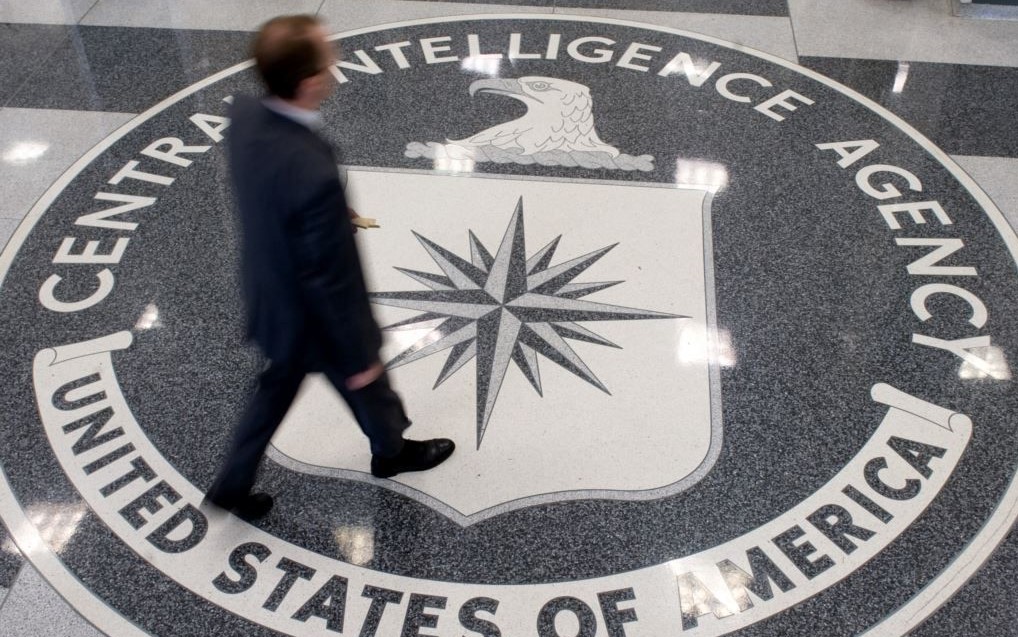Saul Loeb/AFP
By
Ricardo Swire
A recently declassified American Central Intelligence Agency (CIA) document called “The Bahamas: Likely Reactions to a US Drug Indictment,” cataloged potential diplomatic damage that would have resulted from outlawing the 1969 to 1992 Bahamas Prime Minister Lynden Pindling on drug charges. Investigators found US$3 million more than the senior politician’s official income in one bank account. The file stated that if indicted the Bahamian PM had a “narrow but potentially significant range of options (that) could be used to lash out at Washington.”
Generally the coastlines of over seven hundred Bahamian islands, spread across thousands of miles of water, provide innumerable prospects for transnational drug traffickers. US law enforcement agencies estimate fifty to sixty percent of all cocaine and marijuana entering America transits the Bahamas’ territorial waters. The archipelago has depended on political stability, banking secrecy and status as a tax haven, to attract tourism, offshore banking, insurance and foreign investment.
“Any moves such as expropriation of US business and banking assets or imposition of a trade embargo that compromised these basics probably would plunge the economy into a deep recession, with little economic repercussion on the United States.” The CIA’s document considered the potential eventuality of the ex-PM imposing restrictions on US military access in Bahamian territory. The Agency was concerned transnational drug traffickers and Haitian migrants “almost certainly would move quickly to exploit any perceived restrictions on US Coast Guard operations in Bahamian waters.”
The importance of continued cooperation between the Bahamas and US governments is reflected in 2012’s combined Royal Bahamas Police Force (RBPF) and American Drug Enforcement Administration (DEA) personnel interdiction of cocaine worth US$2.5 million. The drugs, weighing three hundred and forty-five pounds, were seized on North West Cay in proximity of Great Inagua Island. The same year national records tabulated that in two months more than fifty pounds of cocaine were intercepted at Lynden Pindling International Airport.
Simultaneously an American presidential memorandum said: “I hereby identify the following countries as major drug transits and/or major illicit drug producing countries: Afghanistan, The Bahamas, Belize, Bolivia, Burma, Colombia, Costa Rica, Dominican Republic, Ecuador, El Salvador, Guatemala, Haiti, Honduras, India, Jamaica, Laos, Mexico, Nicaragua, Pakistan, Panama, Peru, and Venezuela.”
Additionally in 2012 Caribbean islands’ individual importance, as a transit zone for drug shipments destined to American markets, were examined. Five percent of such drugs transited the Bahamas, Dominican Republic, Haiti, and Jamaica. In early July 2012, acting on intelligence shared by America’s Customs & Border Protection, Bahamian narcotic agents intercepted over forty pounds of cocaine aboard a commercial aircraft. The declassified CIA report alluded that expulsion of undocumented Haitian nationals from the Bahamas would magnify the problem of intercepting similar illegal migrants who arrived in Florida.
Washington considered the likelihood of bilateral cooperation deterioration in legal affairs. The White House stated; “Nassau, in our view, might become reluctant to share information as provided for under the pending Mutual Legal Assistance Treaty, needed for criminal investigations in the United States.” The document further informed that reducing a low level of bilateral cooperation, on extradition and the exchange of evidence for criminal investigations, would be “more symbolic than damaging to US interests, at least in the near term.”
The CIA document said that following an indictment the Bahamian PM would probably not have faced significant international pressure in the short term. Most Caribbean governments are “tarred by their own narcotics-related corruption and probably would be reluctant to condemn the Bahamas Prime Minister. “We believe the PM would also call for diplomatic support from other Caribbean countries, charging a US attempt to oust him.”



No Comments Yet!
You can be first to comment this post!